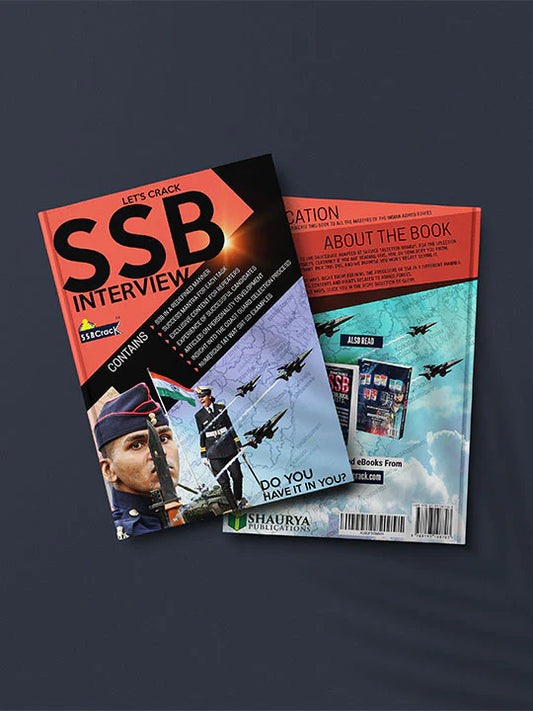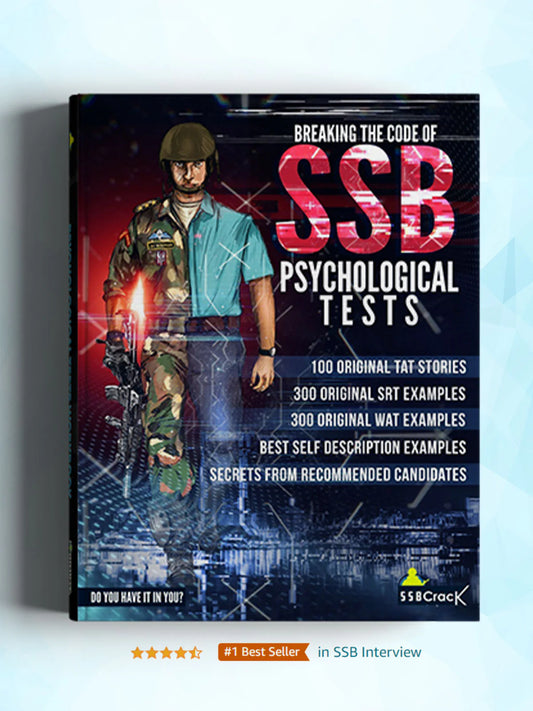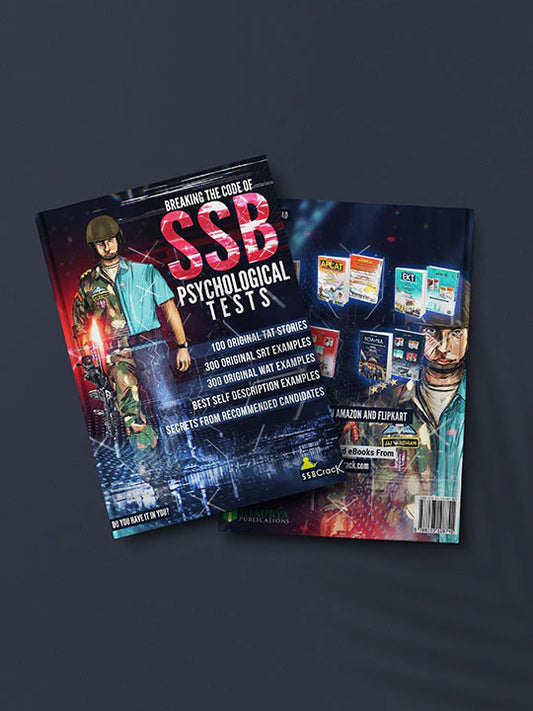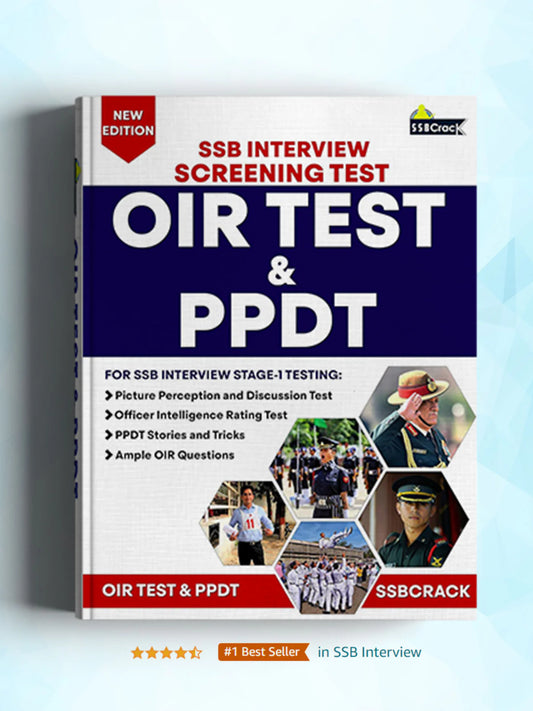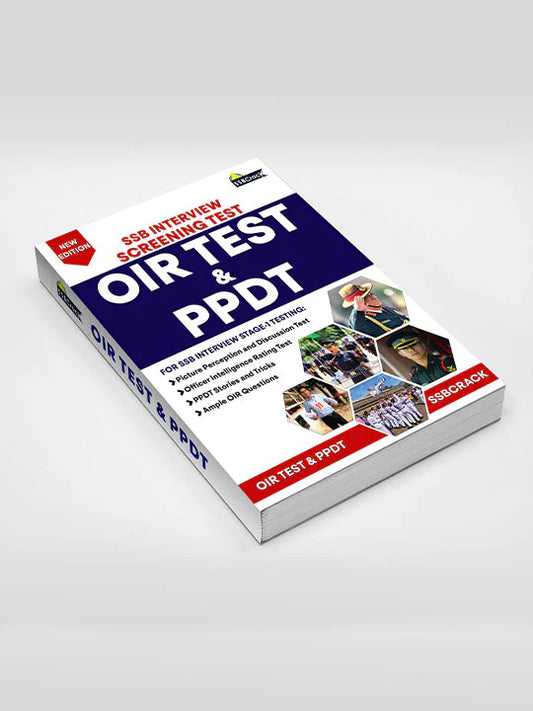SSB Interview Questions 2025 - Sample Answers and Tips
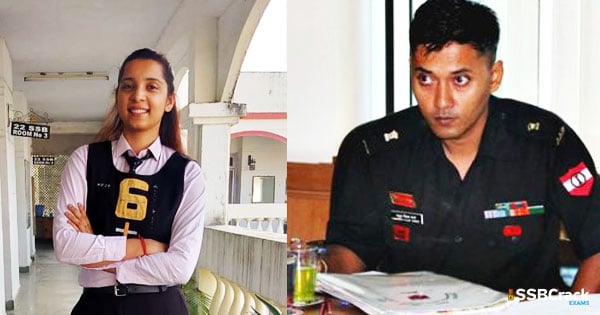
The Services Selection Board (SSB) interview is a pivotal step in the selection process for candidates aspiring to join the Indian Armed Forces. As we move, understanding the types of questions that may be asked, combined with effective strategies for responding, can significantly enhance a candidate’s chances of success. In this comprehensive guide, we will delve into the various categories of questions posed during the SSB interview, sample answers to help candidates prepare, and practical tips to excel in this crucial examination.
The SSB interview process was formally established in the aftermath of World War II, with the goal of selecting individuals best suited for leadership roles in the armed forces. Today, the SSB interview has evolved into a thorough assessment that not only tests a candidate’s knowledge and skills but also evaluates their psychological attributes, attitude, and values. Comprising multiple stages, including the Psychological Tests, Group Testing Officers (GTO) tasks, and Personal Interview, the SSB aims to ascertain a candidate's potential to contribute effectively to the military framework.
SSB Interview Books Power Pack: 4 Must Read Books for Defence Aspirants
Rs. 1,760.00
Sale price
Rs. 1,399.00
Let's Crack SSB Interview Book [Paperback]
Rs. 390.00
Sale price
Rs. 360.00
Breaking The Code of SSB Psychological Tests Book - SSB Interview (TAT/WAT/SRT/SD)
Rs. 390.00
Sale price
Rs. 360.00
OIR Test & PPDT Book - SSB Interview Screening Test - Stage 1 Testing
Rs. 490.00
Sale price
Rs. 375.00
Types of SSB Questions Asked
Understanding the types of questions asked in the SSB interview is fundamental for effective preparation. The questions can primarily be categorized as follows:
Personal Background and Experience
Candidates should expect inquiries about their personal lives, including their upbringing, family background, educational journey, and life experiences that have shaped their aspirations. Examples include:
- "What is the meaning of your name?"
- "Describe your hometown and what you like/dislike about it."
Family-Related Questions
These questions focus on a candidate's family dynamics, relationships, and influences. Typical questions might be:
- "Tell me about your family."
- "Who are you closest to and why?"
Educational Background
The committee will want to understand a candidate’s education, achievements, and leadership experiences. Some common queries include:
- "Describe your education from Class VIII onwards."
- "Why did you choose your stream?"
Current Affairs and Military Knowledge
Candidates should be ready to engage in discussions regarding national and global current affairs, defence policies, and historical military events. Examples include:
- "What are India’s key national challenges today?"
- "What do you know about the Indo-Pak wars or Siachen?"
Psychological Traits and Situational Judgement
This set of questions is designed to explore a candidate's psychological resilience and judgment under pressure. Expect queries like:
- "How do you handle stress?"
- "What would you do if a cadet cheats during an exam?"
SSB Sample Answers and Tips
In addition to knowing the types of questions, candidates should prepare their responses carefully. Below are sample answers and tips for effective communication.
SSB Personal Questions
Tell us about yourself:
Candidates should aim for brevity while including relevant details. For instance:
"I’m Rahul Sharma, a final-year engineering student at Delhi Technological University. Growing up in a military family inspired my interest in the armed forces. I’ve been an active NCC cadet for three years and enjoy long-distance running."
Why do you want to join the Indian Armed Forces?
Reflecting on personal motivations can be influential:
"My desire to join the armed forces stems from my passion for serving the nation, leading a disciplined lifestyle, and the opportunities for personal growth and leadership development."
Strengths and Weaknesses
What are your strengths and weaknesses?
Honesty is critical in discussing personal qualities:
"My strengths include strong analytical thinking and effective team leadership. One of my weaknesses is overthinking decisions, but I’ve been practicing making quicker judgments."
SSB Situational Questions
Describe a challenging situation you faced:
Sharing a real-life example adds credibility:
"During a field exercise, my team and I encountered adverse weather conditions and equipment failure. I took charge, led the team to improvise shelter, and came up with a plan to repair the equipment."
What special preparation have you undertaken this time for SSB?
Discussing efforts for holistic development shows dedication:
"I focused on improving my communication skills through debates and public speaking, stayed updated with current affairs, and followed a disciplined fitness routine."
Why were you not recommended in your previous attempts?
Reflecting on past experiences can demonstrate growth:
"In my previous attempts, I realized I needed to enhance qualities like self-confidence and effective communication. I worked on these areas by improving my general awareness and physical preparedness."
Tips to Excel in the SSB Interview
Preparation for the SSB interview goes beyond study and practice. Here are vital tips to enhance performance:
Know Yourself Thoroughly
Each answer should resonate with the Personal Information Questionnaire (PIQ) filled by the candidate. Self-awareness contributes to authentic responses.
Be Honest
Falsification can lead to discrepancies that interviewers might easily discern. Authenticity is crucial.
Back Up Responses with Examples
Using personal anecdotes lends credibility to your stories, making them more relatable and convincing.
Maintain Eye Contact and Speak Clearly
Exuding confidence through eye contact and clarity in speech fosters trust with the interviewing officers.
Stay Composed
Strive for a balance—avoid both hesitation and overconfidence, as either can create a negative impression.
Practice Mock Interviews
Conducting mock interviews with peers or mentors can help reduce anxiety and familiarize candidates with the types of questions they may face.
Dress Appropriately and Maintain Correct Body Posture
A formal appearance and proper body posture project professionalism and respect.
Strong Communication Skills
Effective communication is paramount. Candidates should articulate thoughts well to showcase their leadership qualities and team spirit.
Stay Informed and Physically Fit
Keeping updated with current affairs and maintaining physical fitness are indispensable aspects of SSB preparation. Engaging with relevant literature and exercising regularly will prepare candidates for both mental and physical challenges.
Numerous candidates have successfully navigated the SSB process by diligently preparing in advance. For instance, many candidates attribute their success to consistent self-reflection and genuine conversations during the interview. Understanding current affairs—such as India’s policies on national security or recent military initiatives—has proven essential as it reflects a candidate's awareness of vital issues.
Statistical Insights
According to recent data, approximately 60% of candidates who attend the SSB interview do not get recommended. This stark statistic underlines the importance of thorough preparation, self-awareness, and adaptability to successfully manage the interview process. Candidates often face intense competition, with thousands vying for limited positions, making it necessary to differentiate oneself through preparation and personal growth.
Challenges and Solutions
Candidates often encounter several challenges during the SSB interview process, including nervousness and fear of failure. To address these issues, candidates can engage in the following solutions:
- Develop Coping Mechanisms: Techniques such as deep breathing exercises can help manage anxiety.
- Seek Guidance: Consulting with previous SSB successful candidates or mentors can provide invaluable insights and strategies for improvement.
- Set Realistic Expectations: Understanding that every candidate has their unique strengths can help alleviate the pressure to conform to a specific mold.
SSB Interview Books Power Pack: 4 Must Read Books for Defence Aspirants
Rs. 1,760.00
Sale price
Rs. 1,399.00
Let's Crack SSB Interview Book [Paperback]
Rs. 390.00
Sale price
Rs. 360.00
Breaking The Code of SSB Psychological Tests Book - SSB Interview (TAT/WAT/SRT/SD)
Rs. 390.00
Sale price
Rs. 360.00
OIR Test & PPDT Book - SSB Interview Screening Test - Stage 1 Testing
Rs. 490.00
Sale price
Rs. 375.00
As the SSB interview process continues to evolve, candidates may see an increasing emphasis on behavioral assessments and scenario-based evaluations. The future may also involve more advanced technology, such as virtual reality, to simulate real-life situations faced by military personnel. As the armed forces adapt to modern warfare's complexities, candidates should prepare for an interview process that reflects these changing dynamics.
Preparing for the SSB interview is not merely about memorizing answers; it encompasses self-discovery, mental preparation, and resilience. By understanding the types of questions expected, articulating responses confidently with personal anecdotes, and aligning answers with personal experiences, candidates can significantly improve their chances of success. Remember, authenticity, confidence, and clarity are key qualities that can make a world of difference. By embracing a well-rounded approach to preparation that incorporates both knowledge and personal development, candidates can navigate the SSB interview effectively.
By integrating these insights into your preparation strategy, you stand a higher likelihood of succeeding in the SSB interview and paving the way for a fulfilling career in the Indian Armed Forces. Stay committed, remain focused, and prepare thoroughly, and you will be ready to embrace the challenges ahead.
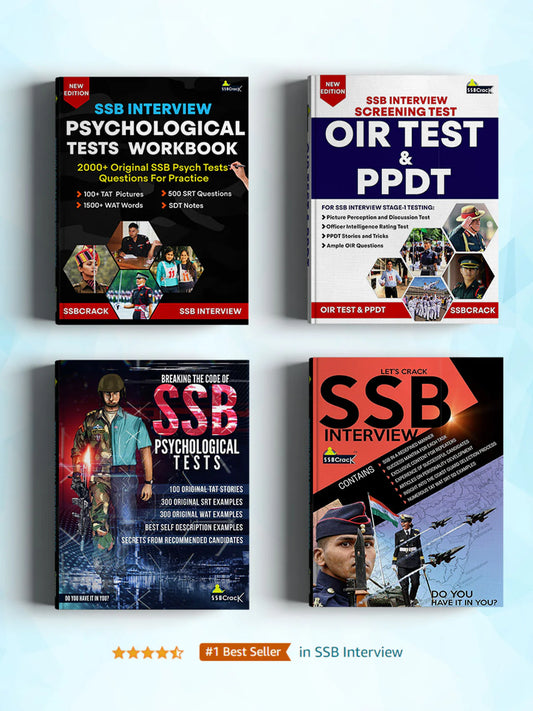
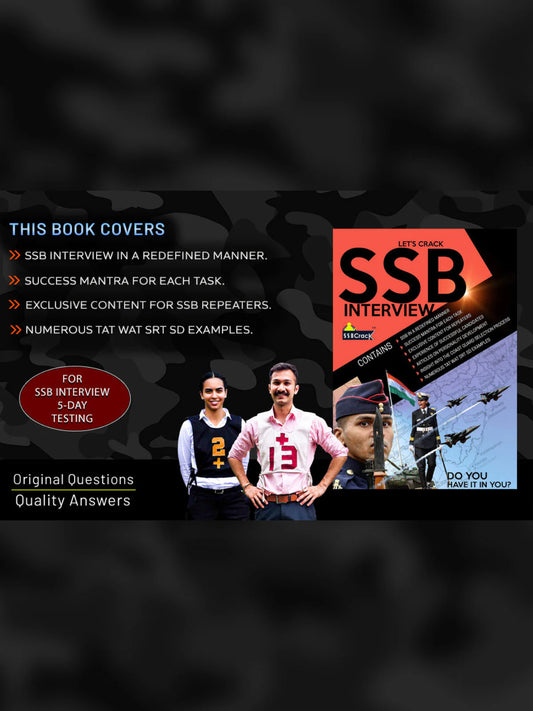
![Let's Crack SSB Interview Book [Paperback]](http://shop.ssbcrack.com/cdn/shop/files/ssb-books.webp?v=1736351621&width=533)
